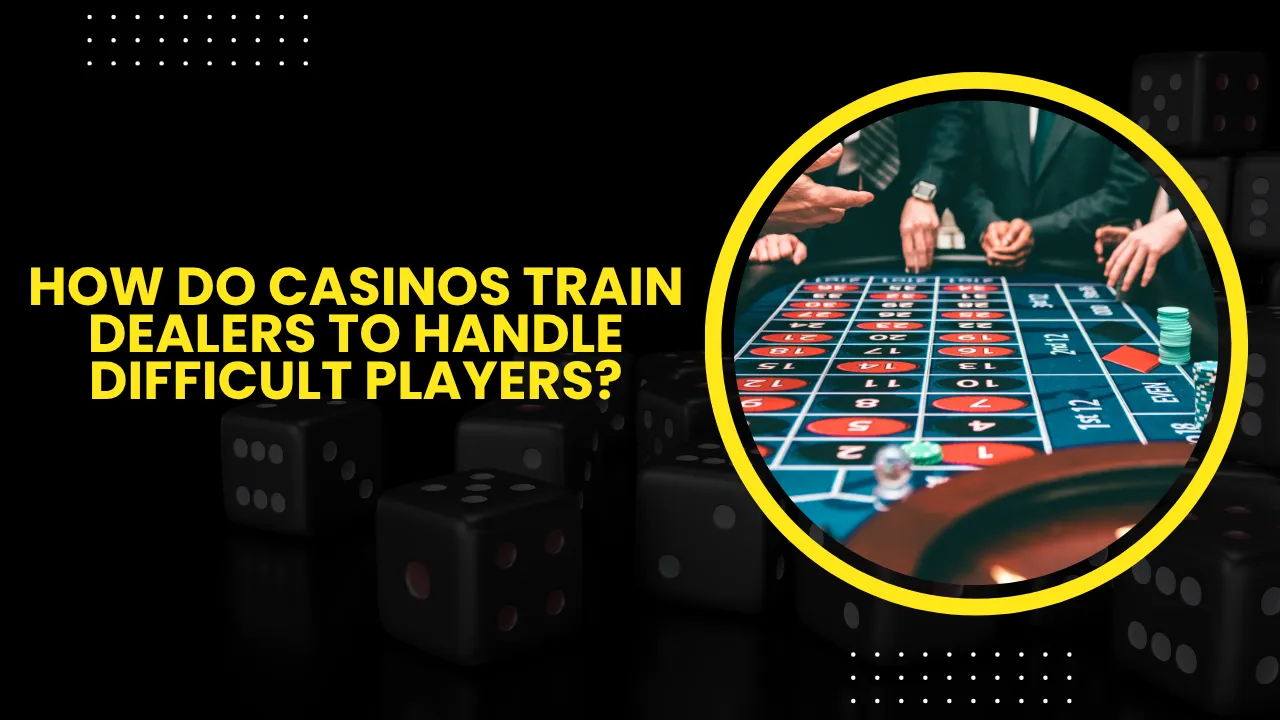Casinos are unique environments where excitement, money, and human emotions mix in unpredictable ways. Dealers sit at the center of this world, juggling multiple responsibilities at once: they manage games fairly, enforce rules, and keep the energy flowing. But one of the most demanding aspects of their role is handling difficult players. Whether it’s someone who’s had too much to drink, a guest arguing over a bet, or an aggressive high roller pushing boundaries, dealers must remain calm and professional at all times.
From my own experience researching the gaming industry and speaking with seasoned dealers, the training programs behind the scenes are far more comprehensive than most people realize. Handling difficult players isn’t just about knowing when to call security; it’s about psychology, communication, and customer service as much as game mechanics.
Communication and Conflict De-Escalation
One of the first things casino dealer training emphasizes is communication. A dealer’s tone, body language, and choice of words can dramatically influence how a player reacts in tense moments. New recruits are often taught through role-play scenarios, where actors or senior staff simulate difficult situations — from a player accusing the dealer of cheating to someone making disruptive comments at the table.
In these exercises, the goal is not to “win” the argument but to de-escalate it. Dealers are encouraged to keep their voices calm, avoid confrontation, and use neutral language like, “Let’s check with the pit boss to make sure everything is correct.” This approach diffuses tension by redirecting the issue to a higher authority, rather than making the dealer appear combative.
The online gaming world mirrors this in its own way. Just as dealers are trained to maintain composure, digital platforms must implement systems to handle disputes effectively. Interestingly, this crossover is also seen in modern trends like no kyc crypto casinos, where players expect smooth conflict resolution without the friction of paperwork or drawn-out procedures. Both land-based and digital operators rely heavily on clear communication to maintain trust and fairness.
Reading Player Behavior
Another key area of dealer training is learning to read players. Casinos are full of diverse personalities: the quiet strategist, the social gambler, the impatient bettor, and occasionally, the disruptive guest. Dealers must quickly recognize these traits and adjust their approach accordingly.
Training often involves studying common behavioral patterns. For example, a player who slams chips on the table might be signaling frustration, while someone who repeatedly questions every small detail could be showing signs of distrust. By spotting these early, dealers can address concerns before they escalate.
Instructors also remind new dealers that some difficult behavior may stem from genuine confusion rather than malice. Many first-time players don’t fully understand table rules, and a patient explanation can prevent a misunderstanding from boiling over.
Emotional Control Under Pressure
Casinos can be high-stress environments. Imagine a crowded blackjack table, multiple side bets in play, and one aggressive player shouting at you because they think the cards were dealt incorrectly. Without emotional control, a dealer could easily crack under the pressure.
Training programs, therefore, place strong emphasis on resilience. Dealers practice maintaining composure even when personally insulted or accused of wrongdoing. They’re taught not to take comments personally, but to view them as part of the job. Many casinos even bring in psychologists or HR professionals to coach staff on stress management, breathing techniques, and professional detachment.
This emotional control doesn’t just protect the dealer’s mental health — it also reassures other players at the table, who may feel uncomfortable when someone is being disruptive. A calm, steady dealer helps preserve the atmosphere of fairness and enjoyment.
The Role of Supervisors and Security
While dealers are trained to handle most situations, there are clear lines they are not expected to cross. When a player becomes physically aggressive, refuses to comply with rules, or harasses others, the dealer’s role is to signal for supervisory or security intervention.
Training drills include rehearsing discreet signals — such as specific gestures or eye contact — that alert floor staff to a problem without escalating it further. Dealers learn the chain of command: involve the pit boss for rule disputes, call surveillance if cheating is suspected, and engage security only when absolutely necessary.
Casinos take this layered approach seriously because it prevents unnecessary confrontations while ensuring the safety of staff and patrons. It also reinforces the idea that dealers are not alone; they are part of a larger team.
Customer Service as a First Line of Defense
What surprises many outsiders is how much emphasis casinos put on customer service. Training isn’t just about shuffling cards and handling bets; it’s about creating a positive environment where conflicts are less likely to arise in the first place.
Dealers are trained to greet players warmly, explain rules proactively, and maintain a sense of fairness and humor. A player who feels respected and included is far less likely to lash out in frustration. Many casinos encourage dealers to use small talk or friendly interactions to build rapport, which can go a long way toward diffusing potential tension.
Even when players are losing — which naturally sparks frustration — a professional and personable dealer can soften the experience, making them more likely to return rather than storm out.
Training Beyond the Casino Floor
Some casinos extend training beyond the gaming tables. Workshops on cultural sensitivity, diversity, and even language basics are often provided to help dealers connect with international guests. The goal is to reduce misunderstandings that could cause disputes.
Additionally, ongoing training is a big part of the profession. Dealers are regularly refreshed on new games, updated policies, and enhanced conflict-management techniques. In today’s digital age, many casinos also run online modules and video training, allowing staff to review best practices whenever needed.
Lessons for the Wider Industry
The strategies casinos use to train dealers reflect broader truths about customer-facing industries. Patience, communication, emotional control, and clear escalation paths are valuable in any environment where people may behave unpredictably.
For online operators, these lessons translate into well-designed customer support systems, transparent rules, and robust dispute-resolution processes. Whether in a bustling casino in Las Vegas or a digital lobby accessed from a smartphone, the principles remain the same: professionalism and empathy are the best defenses against conflict.
Conclusion
Training dealers to handle difficult players is about much more than teaching games. It’s a sophisticated blend of psychology, communication, and customer care. By preparing staff to remain calm, read behavior, and escalate issues appropriately, casinos ensure that even the most challenging situations are handled with professionalism.
Players may come and go, but the reputation of a casino depends heavily on how it treats both its guests and its staff in moments of conflict. The better trained the dealers, the smoother the overall experience for everyone at the table.








